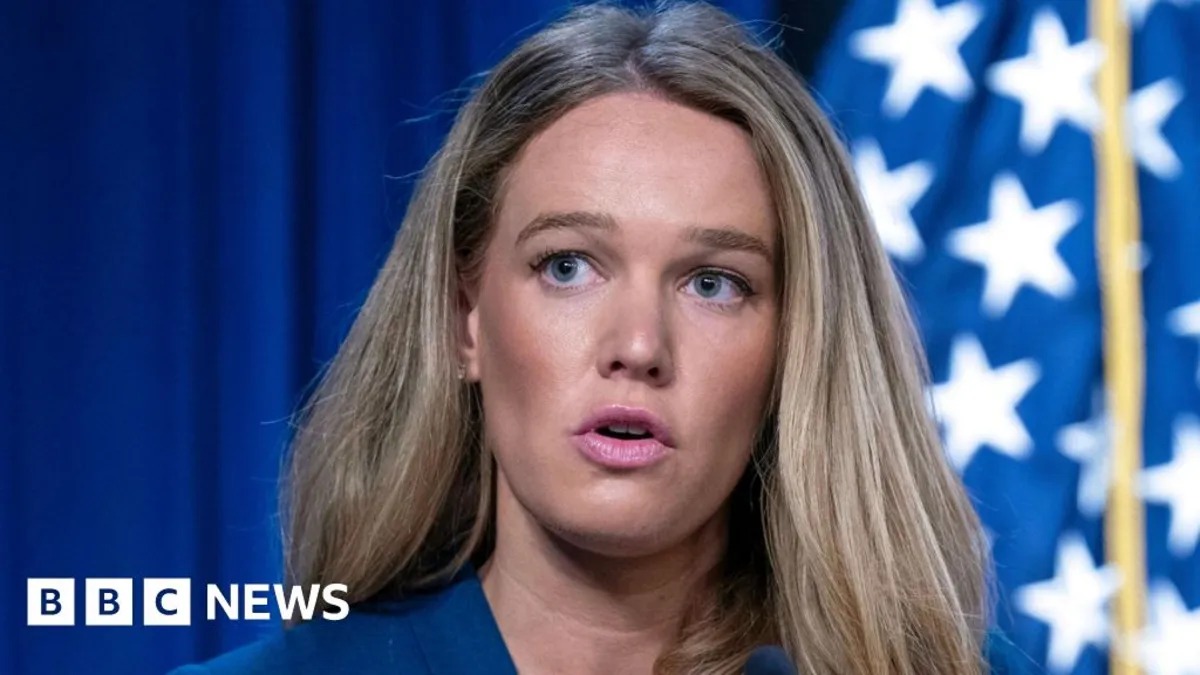
The United States has recently deported five individuals classified as criminal illegal aliens to the southern African nation of Eswatini, formerly known as Swaziland. This significant action was confirmed by Tricia McLaughlin, the Assistant Secretary for the U.S. Department of Homeland Security, in a post shared on the social media platform X. The deportees hail from various countries, including Vietnam, Jamaica, Laos, Cuba, and Yemen, and have been convicted of serious crimes such as child rape and murder.
McLaughlin described the individuals on this flight as "uniquely barbaric," indicating that their home countries had refused to accept them back. In her online statements, she referred to these deportees as depraved monsters who had caused significant distress in American communities. She emphasized the importance of removing such individuals from American soil, stating, "They are off of American soil."
This flight to Eswatini is part of a broader trend where the U.S. has begun sending deportees to countries where they have no familial ties. Earlier this month, the U.S. deported eight migrants to South Sudan after a court ruling lifted restrictions on such actions. McLaughlin's posts highlighted the U.S. government's commitment to addressing immigration issues, particularly regarding individuals convicted of serious crimes.
Eswatini, known as the last absolute monarchy in Africa, has not publicly commented on the arrival of the deportation flight. The country, which is landlocked and bordered by South Africa and Mozambique, has been under the leadership of King Mswati III since 1986. Media reports have previously suggested that Eswatini could become a potential recipient of deportees from the U.S.
Last month, a ruling by the U.S. Supreme Court cleared the path for the Trump administration to resume deportations to countries other than the migrants' countries of origin. Discussions regarding deportations have also included nations such as Rwanda, Benin, Angola, Equatorial Guinea, and Moldova. The Trump administration has previously deported individuals to countries like El Salvador and Costa Rica.
South Sudan recently accepted eight men deported from the U.S., stating they were in good condition and not handcuffed during the transfer. The deportees are being held in a civilian facility in the capital city of Juba, under the supervision of local police and national security services. However, the situation regarding the acceptance of deportees has been complicated by U.S. Secretary of State Marco Rubio revoking visas for South Sudanese passport holders, citing delays in the return of repatriated citizens.
Recently, Nigeria’s government has stated it will not yield to pressures from the Trump administration to accept deportees from Venezuela or third-country prisoners. This decision comes amid a backdrop of broader immigration policies initiated by the Trump administration, including mass deportations that were a focal point of Trump's election campaign and garnered considerable support.
The Trump administration's approach to immigration has not only targeted those living in the U.S. illegally but has also encompassed various visa holders and refugees. With the resumption of workplace raids and other enforcement measures, the landscape of U.S. immigration policy continues to evolve, impacting both immigrants and the communities they inhabit.